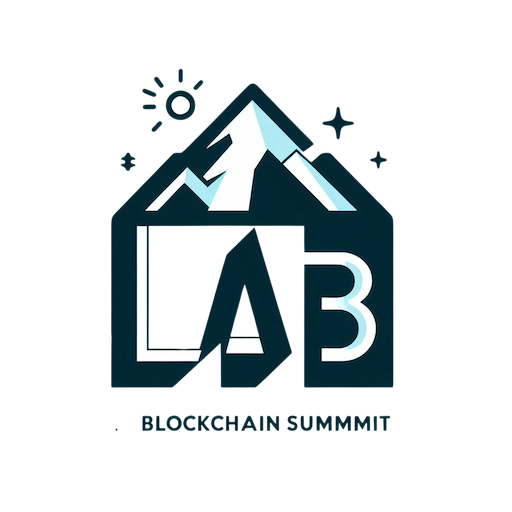Have you ever felt like you’ve been thrown into the deep end regarding blockchain technology? You’re not alone. With its complex jargon and intricate systems, the world of blockchain can seem daunting. But fear not – understanding it doesn’t need to be an uphill battle.
One of the key components of blockchain technology is the smart contract. It’s a term that’s often thrown around, but what does it mean? How does it work, and more importantly, what types of smart contracts exist?
This article aims to break down these questions in a way that’s easy to understand. By the end, you’ll have a clear grasp of the different types of smart contracts in blockchain, empowering you to navigate this exciting space with confidence.
The Concept of Smart Contracts
Defining Smart Contracts
Smart contracts, a transformative facet of blockchain technology, bring depth and utility to digital transactions. Technically, they’re self-executing contracts with the terms of the agreement directly written into lines of code. They commoditize trust and radically simplify the execution of agreements, eradicating the propensity for human-driven errors or manipulation, so achieving security and transparency.
Ethereum, a popular blockchain platform, plays a vital role in smart contract deployment. It has introduced two important token standards, ERC-20 and ERC-721, which govern the creation of new tokens on the Ethereum blockchain. The importance of these standards cannot be overlooked as they’ve established a foundational framework for creating and managing assets in the blockchain environment.
Smart contracts come in various forms, ranging from application logic contracts (which define the rules of a blockchain application) to organization smart contracts (which manage membership and voting within a decentralized autonomous organization – DAO) and legal smart contracts, also known as Ricardian contracts (which are digital promissory notes that can be used for insurance, loans, mortgages, and more).
How Smart Contracts Work
At a fundamental level, smart contracts are self-executing codes automated to perform specific functions once predetermined conditions are met. For instance, in the case of a real estate smart contract, the property is automatically transferred to the buyer on payment receipt without any human interference in the process. This aspect of smart contract functionality demonstrates the principal application of blockchain automation.
The Ethereum network uses a specific computer language, Solidity, to write smart contracts. These contracts, once deployed, function autonomously and transparently, ensuring data integrity and scalability within blockchain applications.
To communicate with the physical world or the internet, smart contracts require a bridge known as ‘Oracles’. Oracles feed real-world data into the blockchain, which smart contracts interact with. Chainlink, a widely-used Oracle solution, provides secure, reliable ways for smart contracts on Ethereum and Hyperledger to interact with real-world data and traditional banking systems.
Summarizing, the elegant amalgamation of trustlessness, legal enforceability, decentralization, and automation found in smart contracts has opened up intriguing possibilities, especially in insurance, banking, supply chain management, and tokenization. A clear grasp of smart contracts and their functions could arguably be one of the most important skills to have in the digital age.
Types of Smart Contracts in Blockchain
As we investigate further into the realms of blockchain technology, it’s crucial to understand the distinct types of smart contracts prevalent today. These include account-controlled smart contracts, contract-controlled smart contracts, Decentralized Autonomous Organizations (DAO), and Decentralized Applications (DApps).
Account-Controlled Smart Contracts
Account-Controlled Smart Contracts turn out to be the more traditional type. Here, the contract is controlled by a private key holder who validates and approves transactions. It’s typically the case in Ethereum, where ERC-20 tokens often follow this model – i.e., they’re associated with an Ethereum account.
Contract-Controlled Smart Contracts
In contrast to Account-Controlled Smart Contracts, Contract-Controlled ones allow the contract itself to hold and control its balance. In these contracts, the transfer of tokens can be accomplished through function calls within the smart contract, providing a greater level of security, automation, and data integrity.
Decentralized Autonomous Organizations (DAOs)
Decentralized Autonomous Organizations, or DAOs, represent a new-age concept in blockchain technology. They’re essentially smart contracts that function as digital corporations. DAOs operate with full transparency and are devoid of any centralized authority, enhancing trustlessness.
Decentralized Applications (DApps)
Decentralized Applications (DApps) are a form of application that runs on a peer-to-peer network of computers rather than a single computer. These applications are governed by smart contracts and can interact with the blockchain with their particular protocol. DApps are immune to censorship, operate autonomously, and their data remains secure and transparent.
By dissecting these types of smart contracts, we pave the way for understanding various blockchain applications – from banking and insurance to supply chain management and real estate – and how they can revolutionize industries through improved transparency, security, and automation.
Benefits of Using Different Types of Smart Contracts in Blockchain
Smart contracts, executing through blockchain automation, demonstrate a new age of business transactions. With everything from banking to supply chain management being revolutionized by smart contracts, it’s worth understanding the key benefits they offer. These benefits can be broadly classified into two categories: security benefits and transactional and operational efficiencies.
Security Benefits
Smart contracts, whether they are self-executing contracts or complex Ricardian contracts, offer enhanced security through blockchain’s decentralization. With data stored across a network of computers, manipulation, and fraud become significantly harder, enhancing data integrity.
Ethereum, for example, uses smart contract codes to manage tokens, like ERC-20 and ERC-721, reducing the risk of fraudulent activities. The transparency offered in contract deployment further boosts security, allowing all participants to view and verify transactions.
Oracles like Chainlink provide a secure bridge between the blockchain and external data sources, enhancing the functionality and trustlessness of smart contracts. Smart legal contracts, such as those used in insurance, loans, and mortgages, offer legal enforceability which increases the belief in the system.
Transactional and Operational Benefits
The operational efficiency brought by smart contracts lies in their automation. Smart contracts, or organization smart contracts, streamline processes and eliminate the need for intermediaries, cutting down costs and time delays.
For instance, in supply chain management, smart contracts can automate the verification process for each step of the goods’ journey, leading to more reliable and efficient supply chains. Real estate transactions can also benefit, with smart contracts expediting property transfers, reducing paperwork, and enhancing transparency.
In the banking sector, various types of smart contracts, such as application logic contracts, can be used to automate banking operations and loans, achieving significant scalability. Besides, the integration of smart contracts in Decentralized Autonomous Organizations (DAOs) can simplify the governance process, offering a democratic and flexible decision-making model.
The benefits offered by the different types of smart contracts in blockchain are immense, not only enhancing security but also revolutionizing the way transactions and operations are conducted in various industries. By utilizing these benefits efficiently, businesses can look forward to improved transparency, reduced costs, and more streamlined operations.
Potential Challenges with Using Smart Contracts in Blockchain
Harnessing the power of smart contracts can bring remarkable transformations, but like any technology, it’s not without its challenges. This section explores potential issues and complexities that organizations might face while implementing blockchain-driven smart contracts.
Technological Challenges
Even though their groundbreaking possibilities, smart contracts can present various technological challenges:
- Code Vulnerability: Smart contracts are, at their core, pieces of self-executing code that cannot be altered once deployed onto the blockchain. This immutable nature adds security but also raises concerns about potential coding errors or vulnerabilities. Since there’s no chance for revisions once the contract is live, any erroneous code could lead to significant loss or exploitation.
- Scalability Issues: While blockchain technologies like Ethereum and Hyperledger have made strides in scalability, constant improvements are still necessary. Handling a large number of smart contract transactions without reducing speed or increasing costs is an ongoing issue in the blockchain area.
- Reliance on Oracles: Smart contracts often require data from the external world to trigger the contract terms. Oracle services like Chainlink bridge this gap by feeding real-world data into the blockchain, but this dependence on external inputs can pose a risk. If the oracle delivers incorrect data, the contract would still self-execute, possibly leading to undesired outcomes.
- Interoperability: Blockchain platforms aren’t universally compatible. A smart contract created for Ethereum won’t work on a Hyperledger platform and vice versa. This lack of interoperability between different blockchain environments can limit the broad adoption of smart contracts.
Legal and Regulatory Challenges
Legal and regulatory issues represent another formidable hurdle in the path of smart contract adoption.
- Legally-Binding Contracts: Establishing the legal enforceability of smart contracts is still a murky area. In some cases, since smart contracts are code, there’s a mismatch between the legal prose and the coded contract, resulting in ambiguities in execution.
- Lack of Regulations: The absence of clear, comprehensive, and consistent regulations around blockchain technology and smart contracts can discourage industries from adopting it. The legal world for blockchain and smart contracts varies greatly from jurisdiction to jurisdiction, creating potential compliance risks.
- Data Privacy Concerns: Blockchain’s transparent and immutable nature can conflict with data privacy regulations like the General Data Protection Regulation (GDPR). For instance, once data is entered into a blockchain, it can’t be removed or altered, which clashes directly with the GDPR’s ‘right to be forgotten.’
- Contractual Disputes: In traditional contracts, disputes are resolved in court or through alternate dispute resolution mechanisms. However, the decentralized nature of smart contracts can complicate such processes, making it challenging to determine jurisdiction and authority for dispute resolution.
The Future of Smart Contracts in Blockchain
As we venture further into the area of virtual transactions, smart contracts’ functionalities are set to be a game-changer. Even with prevalent challenges, the industry is proactively addressing scalability issues, creating platforms like Ethereum and Hyperledger to support an array of applications.
- Expanding Applications: Demand for various application logic contracts, including smart legal contracts and organization smart contracts, is expected to rise. For example, in banking, smart contracts could automate processes related to loans and mortgages. In the insurance industry, smart contracts could expedite claim settlements.
- More Security and Data Integrity: In addressing code vulnerabilities, blockchain platforms are prioritizing security measures. From deploying contract codes to tokenization, these platforms aim to provide greater data integrity, ensuring that transactions remain transparent and trustworthy.
- Growth of Decentralized Autonomous Organizations (DAOs): DAOs offer promise as digital entities that operate via smart contracts. They create a trustless environment by automating transactions without needing intermediaries.
- Integration with Real World through Oracles: Overcoming the restrictions of the initial smart contracts, future smart contracts will use Oracles to help integration with external operations. Chainlink, for example, is already providing secure, reliable inputs and outputs for complex smart contracts.
- Real Estate and Supply Chain Adaptations: Industries are set to adopt blockchain automation. Imagine real estate transactions with smart contracts that eliminate paperwork, speed up the process, and drastically cut costs. Or supply chains, where smart contracts can ensure transparency at every stage, from manufacturing to delivery.
- Legal Enforceability: The legal framework around smart contracts is evolving to accommodate their unique challenges. The future might see laws supporting the enforceability of self-executing contracts, increasing their acceptance.
- Development in Standards: Token standards such as ERC-20 and ERC-721 are improvements in process and functionality. As Ethereum continues to grow, development in token standards will cater to creating more adaptable and robust smart contracts.
The future of smart contracts is poised for not only technological advancements but also a profound societal impact. Integrating blockchain applications across sectors, smart contracts are set to redefine how we transact in the digital era.
Key Takeaways
- Smart contracts are a vital component of blockchain technology, functioning as self-executing contracts with terms of the agreement coded into them, thereby increasing transaction security and transparency.
- Ethereum, through its token standards ERC-20 and ERC-721, plays a significant role in smart contract deployment, establishing a foundational framework for asset creation and management in blockchain.
- There are four main types of smart contracts: account-controlled, contract-controlled, decentralized autonomous organizations (DAOs), and decentralized applications (DApps), each with its unique features and applications.
- Smart contracts offer substantial benefits, including enhanced security through blockchain’s decentralization and improved transactional and operational efficiency via automation.
- Despite their transformative potential, smart contracts face challenges like code vulnerabilities, scalability issues, reliance on oracles for external data, interoperability limitations, and various legal and regulatory hurdles.
- The future of smart contracts is promising, marked by expanding applications in various sectors, improved security, growth of DAOs, integration with the real world through oracles, and evolving legal frameworks supporting the enforceability of self-executing contracts.
Frequently Asked Questions
What are smart contracts in blockchain technology?
Smart contracts are self-executing contracts with the terms of the agreement directly written into lines of code on a blockchain. They automatically execute tasks upon meeting predefined rules and conditions.
What are the benefits of smart contracts?
Smart contracts offer high levels of security and improve operational efficiencies. They eliminate the need for intermediaries, thereby reducing costs, and their automation increases speed as well as accuracy in processes.
What issues do smart contracts currently face?
Scalability is a major issue as the network grows, which affects speed and cost. Security measures also require further enhancement as vulnerabilities can lead to significant losses.
How can smart contracts be applied in banking and insurance?
In banking, smart contracts can automate payment processes, loan disbursement, and more. For insurance, can initiate and execute claims’ payments when predefined conditions are met.
What is the future outlook for smart contracts in real estate and supply chains?
Smart contracts hold the potential to streamline processes in both sectors. In real estate, they could automate property sale processes, while in supply chains, they could ensure transparency and traceability.
How are smart contracts legally enforceable?
Smart contracts present interesting challenges for legal enforceability. While they can represent contractual terms digitally, regulatory acceptance and integration with existing legal frameworks are key issues currently being addressed.
How do standards like ERC-20 and ERC-721 affect smart contracts?
Standards like ERC-20 and ERC-721 define a common set of rules for smart contracts, ensuring interoperability. ERC-20 has become a standard for fungible tokens while ERC-721 is used for non-fungible tokens.
How can smart contracts impact society?
Smart contracts can revolutionize how we conduct transactions, with effects permeating various sectors. Their potential to streamline processes, and increase transparency and security can lead to a broader societal shift towards digitalization.
Learn More from Specialists in Smart Contracts
-
Expertise in smart contract development, protocols, and underlying blockchain technology:
Kathleen Breitman, Jorge Izquierdo, Alexander Skidanov, Medha Parlikar





